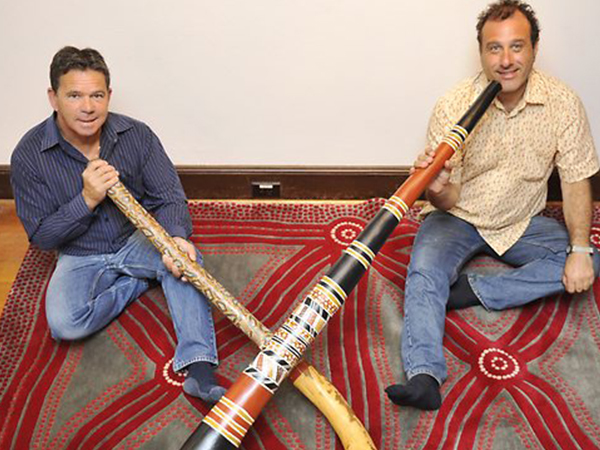By Dean Frenkel
Civilisation requires societies to value a range of human liberties and protect them as rights. It’s important to identify each one and the degree they are respected.
My siblings and I were born in Australia to Jewish parents. Our mother was 6th generation Australian, and father, a Polish immigrant who had been forced out of his homeland by history’s worst tyrant. Their union formed a divergent genetic route that is uncomfortably attributable to Hitler, but our solace is that we are examples of the monumental failure of his genocidal plan.
I went to Christian schools, studied anthropology at university and became trained to examine cultures from a broader perspective. It took me a long time to find my cultural identity including my Jewishness and Australian-ness. Being vegetarian, my culinary antenna veered away from the mainstream. I never ate chicken soup, gefilta fish, KFC, hot dogs or even Vegemite.
Australia is a special multi-cultural society that presents a cornucopia of world cultures ripe for cross-pollination. Cultural practices can be explored, better cultural mores selected and less attractive ones rejected. It is a great liberty to choose your cultural practices compared with being forced into them. Cherry picking also opens the opportunity to grow into more substantial well-rounded people and the addition of every branch makes us more unique. Though some do vilify it, cross-cultural pollination does not make culture less authentic, it evolves new levels of personal and cultural development.
I am a passionate individualist and here are some examples of where the trade winds have taken me. My spirituality is deeply connected with nature – it is ritually expressed through my yoga, singing and explorations into consciousness.
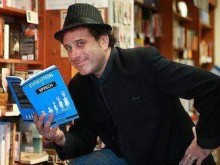 Having attained my Social sciences degree in 1993 I learned didgeridoo and adapted it musically and for wellness. I also developed a deeper connection to Australia and our indigenous people. In 1994 I studied hypnosis to learn about consciousness and wrote a book with David McRae ‘The Essential Meditation Guide’, published by Hill of Content. For two decades I have combined the Indian practice of yoga with the Nordic practice of sauna. Having completed over 4,000 sessions, I developed my own form of sitting yoga for the sauna, which greatly benefits my health and singing.
Having attained my Social sciences degree in 1993 I learned didgeridoo and adapted it musically and for wellness. I also developed a deeper connection to Australia and our indigenous people. In 1994 I studied hypnosis to learn about consciousness and wrote a book with David McRae ‘The Essential Meditation Guide’, published by Hill of Content. For two decades I have combined the Indian practice of yoga with the Nordic practice of sauna. Having completed over 4,000 sessions, I developed my own form of sitting yoga for the sauna, which greatly benefits my health and singing.
Music is my primary art but I specialize in a form that is different – ambient world space jazz is not even a recognized category. In 1993 I learned the unique tribal vocal art of throat singing, connecting me with amazing people and extraordinary times including a Guinness world record for voice (2005-9). My training for this included regular practice of a set of exercises to maximize my breath abilities.
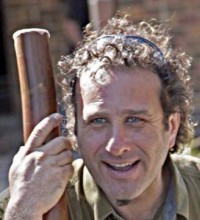 In 2010 I adapted these exercises to help people with respiratory ailments including asthma, smoking-related and others and it became my Wellness Breathing program. My participants are singers, meditators and people with respiratory challenges who routinely experience major improvements of expanded respiratory abilities and most double their breath duration within 2 months on the program. Sessions are done in person or via Skype from Melbourne to Monte-Negro, Melbourne to Germany, Melbourne to China, Melbourne to Japan and Melbourne to Ecuador. Among my students have been a Golden Guitar Award singer, an international opera singer, a psychologist recovering form cancer and a 14 year old perfectly healthy Skype student from the Hunter Valley who achieved his own Guinness world record for longest didgeridoo breath (65.6 seconds).
In 2010 I adapted these exercises to help people with respiratory ailments including asthma, smoking-related and others and it became my Wellness Breathing program. My participants are singers, meditators and people with respiratory challenges who routinely experience major improvements of expanded respiratory abilities and most double their breath duration within 2 months on the program. Sessions are done in person or via Skype from Melbourne to Monte-Negro, Melbourne to Germany, Melbourne to China, Melbourne to Japan and Melbourne to Ecuador. Among my students have been a Golden Guitar Award singer, an international opera singer, a psychologist recovering form cancer and a 14 year old perfectly healthy Skype student from the Hunter Valley who achieved his own Guinness world record for longest didgeridoo breath (65.6 seconds).
In 2005 I was asked to train a developmentally delayed adult to functionally speak. He had a collection of speech problems that disabled his communications and made him impossible to understand. Over many lessons I developed a program to train him to speak functionally and eventually led me to identify the collection of human speech skills which could be tested on a worthy group of guinea pigs: Australian politicians. This intriguing exercise also led to the controversial subject of the origins of speech.
I believe that speech only became possible because of singing. The vocal muscles are like other muscles. They grow and strengthen with exercise, establish neuro-muscular connections and become more dexterous and skilled with practice. Singing trained breath control and developed the four groups of articulator muscles for speech. Yet most prominent linguists have bypassed the role vocalizing played in the origins of language.
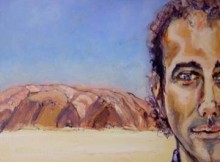 In 1994 I did my most therapeutic project of all. I combined meditation and explored what it is like to receive all the different styles of therapeutic massages that were available and wrote it up for a book, ‘The Art of Being Massaged’. My extra physical need for massage resulted in a continuation of these explorations leading me to innovate and develop a set of massage tools using lacrosse balls which have revolutionized my life. My passion for difference and diversity stems from being happy to be different.
In 1994 I did my most therapeutic project of all. I combined meditation and explored what it is like to receive all the different styles of therapeutic massages that were available and wrote it up for a book, ‘The Art of Being Massaged’. My extra physical need for massage resulted in a continuation of these explorations leading me to innovate and develop a set of massage tools using lacrosse balls which have revolutionized my life. My passion for difference and diversity stems from being happy to be different.
Circa to the 21st century and what I consider to be the greatest assault on individuality and the source of the world’s main problems – the epidemic of over-population. The first casualty of over-population is difference. Systems discriminate against the different and nullify individuality. I see enforcement of svstemised conformity as a form of social communism.
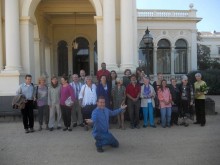 There is no doubt that western societies developed better human rights policies because powerful vested movements fought and won battles to change society’s values. A range of liberties has ensued including racial equality, sexual equality, freedom of religion and much more. Yet other basic human rights have not fared so well. Perhaps the most glaring is the intrinsic right of individuality is most neglected of all.
There is no doubt that western societies developed better human rights policies because powerful vested movements fought and won battles to change society’s values. A range of liberties has ensued including racial equality, sexual equality, freedom of religion and much more. Yet other basic human rights have not fared so well. Perhaps the most glaring is the intrinsic right of individuality is most neglected of all.
Indeed I believe that discrimination against individuality is every bit as serious as discrimination against race, culture, gender, sexual orientation, disability, height, weight, and religion. Being different is not better; it’s actually considerably harder. But individuality is a fundamental human right worth advocating for.
By Dean Frenkel

